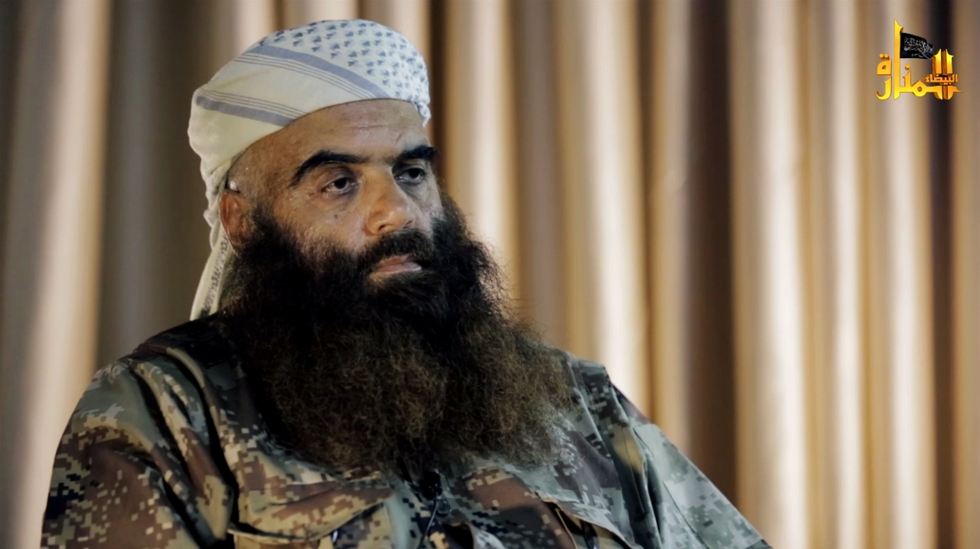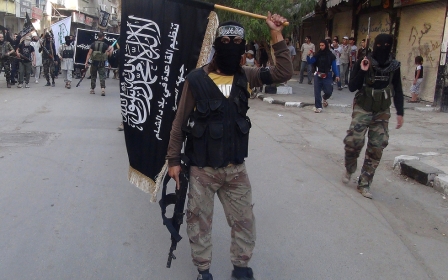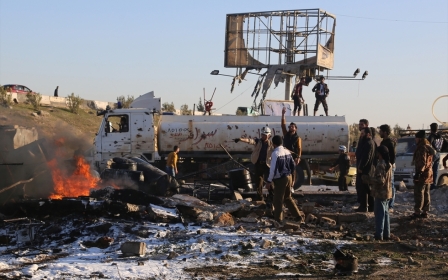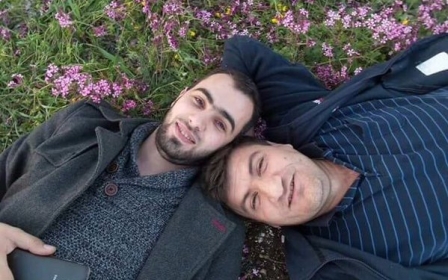Senior Nusra leader killed in air strikes in Syria's Idlib

A veteran leader of and spokesman for al-Qaeda's affiliate in Syria has been killed in an air strike in the country's Idlib province, according to reports.
Abu Firas al-Suri was among several Nusra Front members killed in the attacks on Sunday in the Nusra stronghold in Kafar Jales in northwestern Syria.
The Pentagon on Monday confirmed it had targeted Suri and the other fighters in an air strike in Syria.
Pentagon press secretary Peter Cook said the US military carried out the strike in northwestern Syria on Sunday, resulting in several enemy fighters being killed.
"We assess that al-Qaeda senior leader Abu Firas al-Suri was in that meeting and we are working to confirm his death," Cook said.
Suri fought against Soviet forces in Afghanistan where he met Osama bin Laden and the al-Qaeda leader's mentor, Abdullah Azzam, before returning to Syria in 2011.
Suri was meeting other leading Nusra fighters when he was killed.
Pieter Van Ostaeyen, a historian and monitor of militant groups, said Suri was "an old time al-Qaeda member... he was brought in from Yemen as an ideological counterweight" for Nusra's rivals, the Islamic State (IS) group.
"His death indeed is a blow for Nusra. However, that will not change a lot on the operational level," he added.
According to the Syrian Observatory for Human Rights, Suri, his son and at least 20 militants of Nusra and Jund al-Aqsa and other fighters from Uzbekistan were killed in Sunday's attack.
Seven held high ranks in the group, the observatory said, adding that the Syrian air force had probably carried out the strikes.
Suri, who was also a veteran of the 1982 Islamist uprising against then Syrian president Hafez al-Assad in Homs, had also publicly rebuked IS and explained the differences between the two.
“Nusra did not announce an emirate in the meaning of an independent emirate, or the meaning of a state, or any meaning close to that,” Suri said in a video obtained by SITE Intelligence Group in 2014.
“We mean the emirate should be established by consulting those who have an Islamist affiliation, whether from the jihadi factions, or the local leaders of the country, or the people of influence, and of course, with all the scholars inside and outside the country."
Hezbollah commander killed
Also on Sunday, a senior Hezbollah commander was killed in the countryside of Aleppo, where the group has been involved in fierce battles with Nusra.
Ali Fawzi Taha's death was announced by pro-Hezbollah news site Janub Lubnan, which said he was killed "while carrying out his sacred jihadi duties" but did not specify how he was killed.
Taha hailed from Burj al-Barajneh, a suburb of Beirut known for being a stronghold of support for the Lebanese militant group which was the target of a deadly double suicide bombing last November.
Pro-opposition sites said Taha was the highest-ranking commander active in Syria, and had been responsible for the months-long siege of Madaya, which attracted international outrage after residents were reported to be eating animal feed and dying of starvation early this year.
Warning to Nusra
A temporary ceasefire between government forces and rebels has largely held since 27 February - it covers Hezbollah, but not Nusra and IS.
Nusra has generally kept a low profile since the truce brokered by the US and Russia came into force.
But on Friday, the al-Qaeda affiliate and allied rebel groups pushed government loyalists out of al-Eis, a strategic town in the northern province of Aleppo, killing 12 members of the Lebanese Hezbollah movement.
"It was Nusra's biggest operation since the ceasefire began," observatory chief Rami Abdel Rahman said.
Suri's killing may even be a warning by the government to Nusra against staging any more offensives in future.
IS has also lost a string of high-ranking members in recent weeks, mainly to strikes by the US-led coalition that launched an aerial campaign against the group in Iraq and Syria in 2014.
On Wednesday, a drone strike near IS's de facto capital Raqqa killed Tunisian commander Abu al-Haija, according to the observatory.
Fifteen IS commanders accused of revealing his position have since been executed, and the fate of another 20 men accused of collaborating with the US-led coalition remains unknown.
"This is the highest number of executions of security officials by IS," said Abdel Rahman, whose Britain-based group has a wide network of contacts on the ground across Syria.
Army seizes town
Also on Sunday, the army seized the city of al-Qaryatain, one of the last IS strongholds in central Syria, according to state television.
IS militants withdrew from the town a week after the Russian-backed army and allied militia scored a major victory in the ancient city of Palmyra, which is also located in the vast province of Homs.
The recapture of al-Qaryatain allows the army to secure its grip over Palmyra, where militants destroyed ancient temples during their 10-month rule and executed at least 280 people.
The army's recapture of al-Qaryatain has left IS with just one bastion in Homs province, Sukhna, where the focus of the fighting has now shifted.
New MEE newsletter: Jerusalem Dispatch
Sign up to get the latest insights and analysis on Israel-Palestine, alongside Turkey Unpacked and other MEE newsletters
Middle East Eye delivers independent and unrivalled coverage and analysis of the Middle East, North Africa and beyond. To learn more about republishing this content and the associated fees, please fill out this form. More about MEE can be found here.




